Creative landscape architecture is about finding a connection and balance between the natural, technological and human worlds. Well-designed landscapes offer spaces for recreation, relaxation and social interactions, promoting mental and physical health.
Our landscape architects design schemes that produce a wide range of benefits, including managing stormwater and stimulating economic activity, social and emotional wellbeing, supporting habitat restoration, improving air quality and providing shade from intense heat.
We help clients to analyse, imagine, design and deliver thoughtful, regenerative schemes – developing everything from cities to parklands and urban public realm around commercial, corporate, residential and transport projects. By balancing functionality, beauty, safety, accessibility and environmental sensitivity, landscape architecture can shape sustainable, thriving and enjoyable urban and rural environments. Together with our architecture, urban design, ecological, planning, transport specialists, we deliver projects spanning strategic development plans, masterplans for new cities, districts and mixed-use developments, major infrastructure projects as well as streetscapes, public realm and green building solutions.
How we can help you
Landscape design and masterplanning
We help clients integrate natural and built environments into their projects from the outset, maximising urban green infrastructure, improving local biodiversity and providing a sustainable backdrop to modern life.
Landscape design and masterplanning
We help clients integrate natural and built environments into their projects from the outset, maximising urban green infrastructure, improving local biodiversity and providing a sustainable backdrop to modern life. Our coordinated design approach across disciplines creates sympathetic landscapes that can evolve with the future.
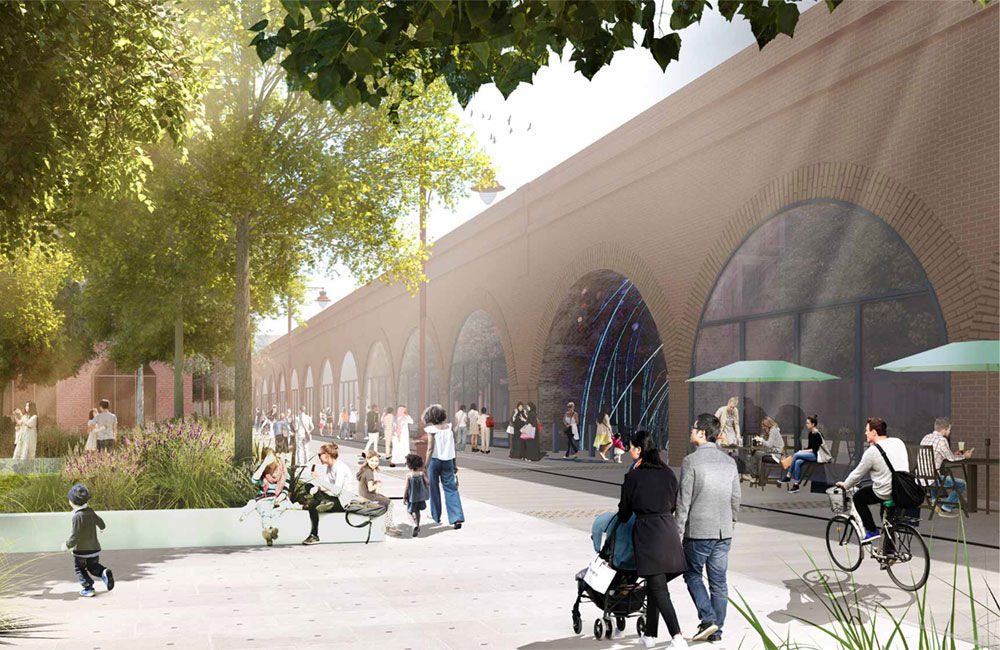
The Bermondsey Project is one of London's largest built-to-rent developments - Grosvenor commissioned our landscape architects to develop landscape strategies and design streetscapes within the development.
Landscape architecture can also function as a design corrective, providing nature-based solutions to day-to-day issues. Our team develops landscape strategies and frameworks at city or district level to address urban challenges such as car use, climate resilience, air pollution, urban heat islands, encouraging economic activity while improving people’s connection with nature and access to active travel.
Inclusive landscape design
The way our towns and cities are planned or developed, often reflects historic injustices to less powerful or privileged groups – whether by race, religion, wealth or any other aspect. Landscape architecture can play a powerful role as we address these issues, reconnecting separated communities, providing shared green spaces that can be enjoyed by all groups, ages and abilities or active travel options like bike networks that bring groups back into a shared environment.
Every context has its own story and its own ambitions. Our work begins by engaging with community bodies, indigenous groups, specialists and local experts to consider the experiences and desired outcomes of different cultures, races and gender identities. We always aim to fully understand the issues across many user groups, from accessibility to perceptions of safety. We co-create places that improve people’s quality of life for the long-term.
Major projects and infrastructure
We always embed regenerative land management and nature-based solutions to restore habitats, reverse species loss and design in resilience to extreme climate change impacts, such as intense heat or flooding.
Major projects and infrastructure
On major projects and large infrastructure schemes, landscape architecture performs a number of functions at once.
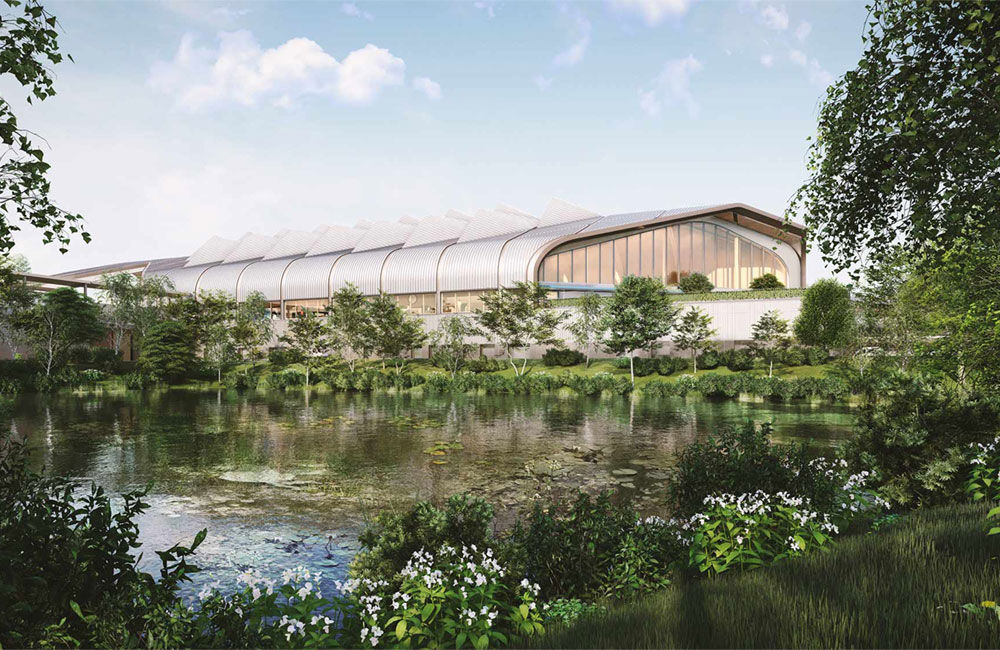
Our landscape design concept for HS2 Interchange Station featured sustainable drainage systems to reduce the burden on surface water drainage whilst naturally irrigating planted areas. There will be new natural habitats created around the station, leaving a legacy of biodiversity and an enhancement of native species.
Our landscape designs for infrastructure projects go beyond traditional practices to enhance the wider landscape’s aesthetic, cultural and ecological condition for generations to come.
For transport schemes, landscape architecture helps to establish new services and infrastructure’s connection to the existing fabric of a place, while adding natural appeal and flood resilience to each site. On large urban development projects, landscape architecture provides opportunities to improve the community experience at scale, providing new areas for activity, leisure and healthy travel.
Through regenerative land management and nature-based solutions we are restoring habitats, reversing species loss and embedding resilience to combat extreme climate change impacts, such as intense heat or flooding.
Find out more
Nature-based designs
We help our clients manage and mitigate the carbon impacts of their landscape projects by reducing carbon footprints and increasing sequestration in the places we design.
Nature-based designs
The landscape architecture element of any scheme presents a wealth of opportunities to support a town or city’s wider climate action priorities.
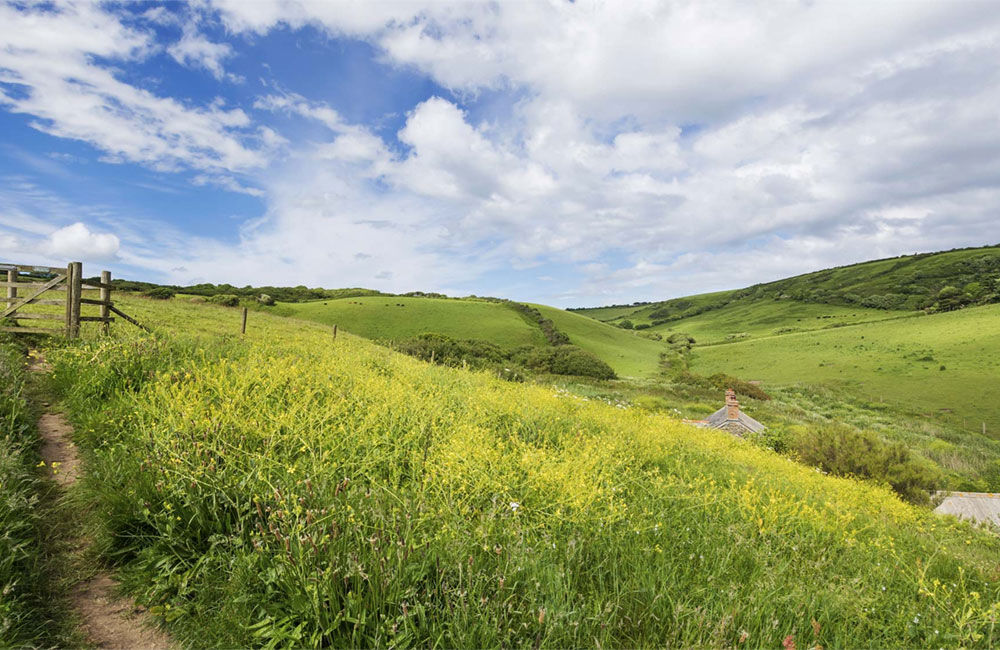
Working with National Highways, Arup has designed Keyn Glas, a landscape scheme alongside the A30 in Cornwall that takes a regenerative approach to land management, restoring habitats and historic landscapes, increasing biodiversity, and reducing the risks of climate change impacts such as flooding.
Landscape architecture is central to how we achieve healthier communities, sustainable development and economic growth, with climate positivity acting as a guiding principle throughout each project or scheme.
Whether it’s developing urban meadows, regenerating parkland or simply bringing more trees into the streetscape, nature-based design solutions are often the most affordable and scalable way to restore, regenerate and enhance an environment. And they’re always the lowest emission solution to build an area or asset’s resilience to climate change.
Emission reduction and resilience
We help our clients manage and mitigate the carbon impacts of their landscape projects by reducing carbon footprints and increasing sequestration in the places we design. We can protect and expand natural assets to deliver benefits to city developments. From planting urban forests, pedestrianising whole districts, creating new blue-green corridors and wetlands to large scale passive cooling of surfaces and buildings and integrated ‘green, blue and grey’ water management. Integrating nature in every urban system delivers wider ecosystem benefits. These range from improved pollination and flood control to improved biodiversity.
Our expertise spans natural capital assessments, support with green finance and nature governance, alongside strategic planning and nature design to shift projects towards outcomes that reverse nature degradation. From regenerative land management to green buildings, we integrate nature-based solutions as a fundamental element in the planning, design and ongoing delivery and stewardship of proposed schemes.
Landscape planning and assessment
Our landscape planning and strategy experts use our specialist research and analysis skills to inform and influence designs which respond positively to place and connect people with nature.
Landscape planning and assessment
To create successful landscape solutions that benefit current and future generations, clients need to understand a site’s potential, constraints and visual impact in order to make informed decisions at the early stage of a project.
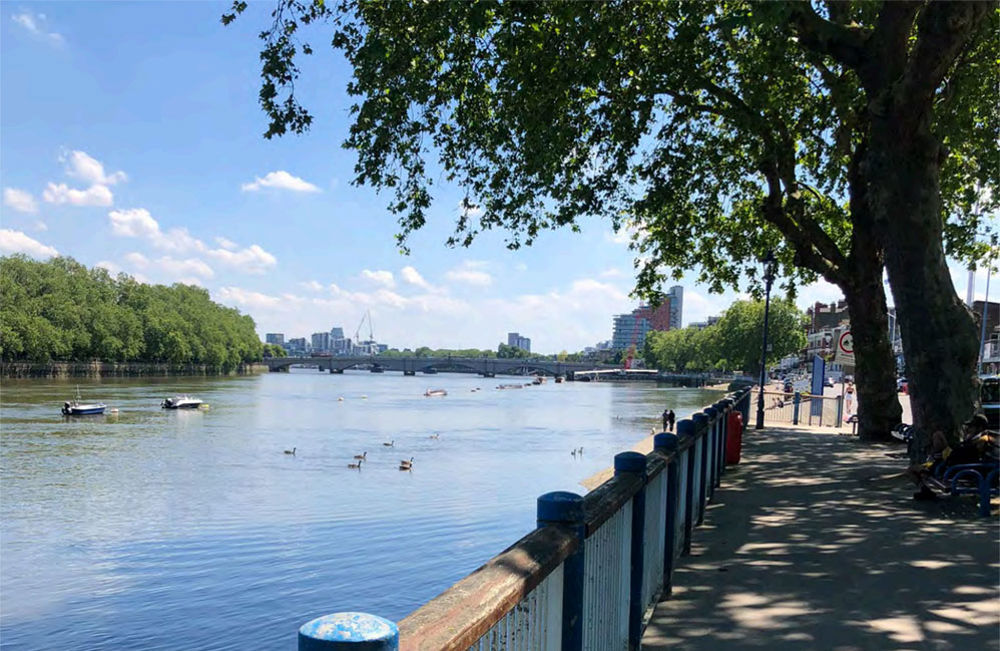
The River Thames in Wandsworth, London - understanding the constraints of a site is a key part of our work with clients
Landscape planning is an area of expertise that is concerned with planning for the most productive and efficient use of land, responding to context and using thorough assessment to inform design solutions.
Our landscape planning and strategy experts use our specialist research and analysis skills to inform and influence designs which respond positively to place and connect people with nature. This robust assessment work supports all project stages and scales, from pre-application consultation for site specific appraisals to local plan evidence base studies and strategies.
We help secure consent for a range of technically challenging projects, including major infrastructure schemes in protected landscapes through the DCO (development consent) process. This requires intensive stakeholder engagement and close collaboration with planning, environmental and design disciplines. We regularly defend our work through public inquiries, acting as expert witness on landscape and visual matters.
Learn more about our work on the Southern Auckland Economic Masterplan
Projects
Discover our latest work:
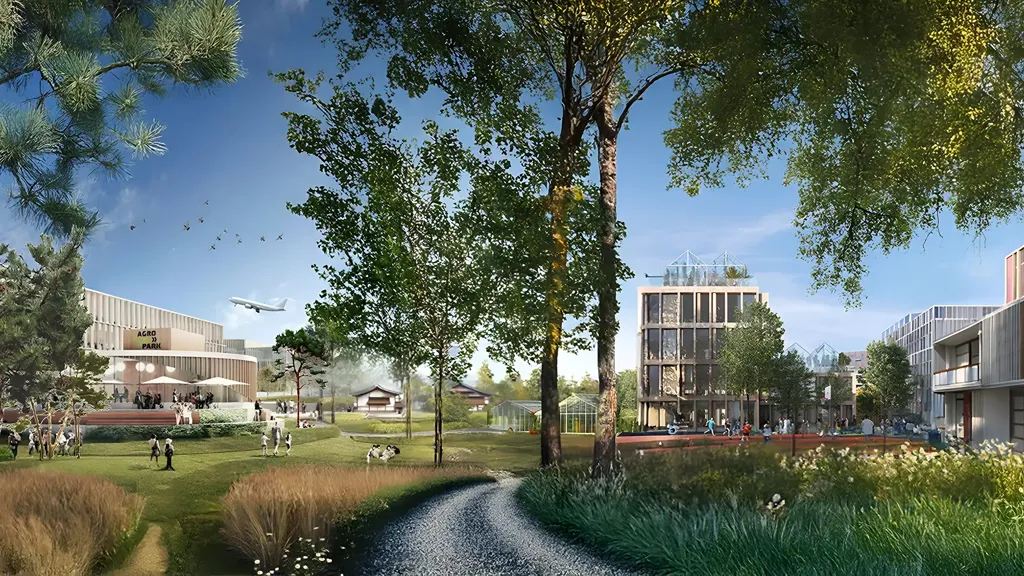
Redefining Japan’s future airport city
Narita Airport City, Japan
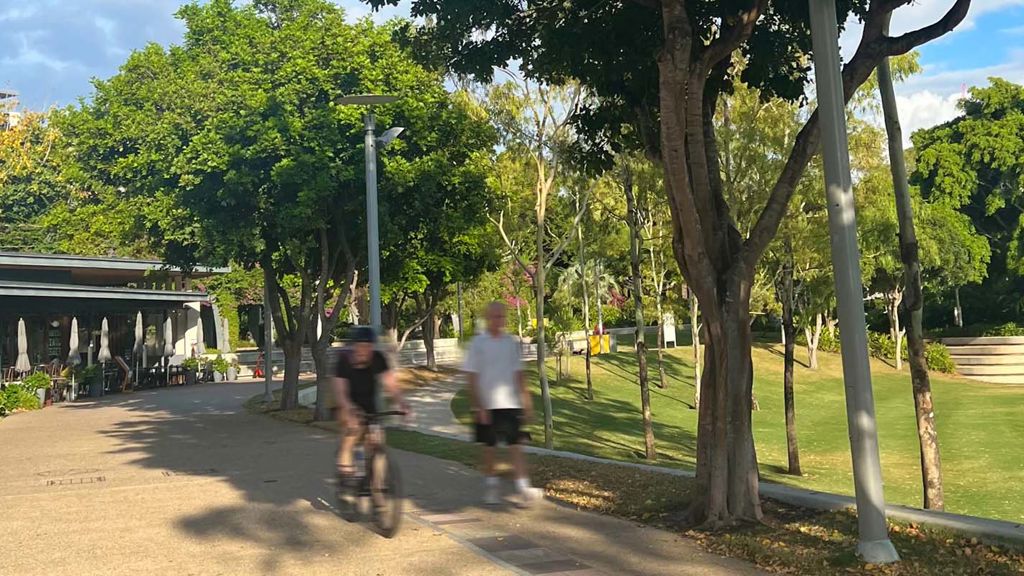
Digital tools help keep Queenslanders safe in the shade
Healthy Places Healthy People: Strategic Tree Planning and Planting Guidance, Australia

Bhutan’s capital city bets on a sustainable, inclusive future
Thimphu Structure Plan, Bhutan
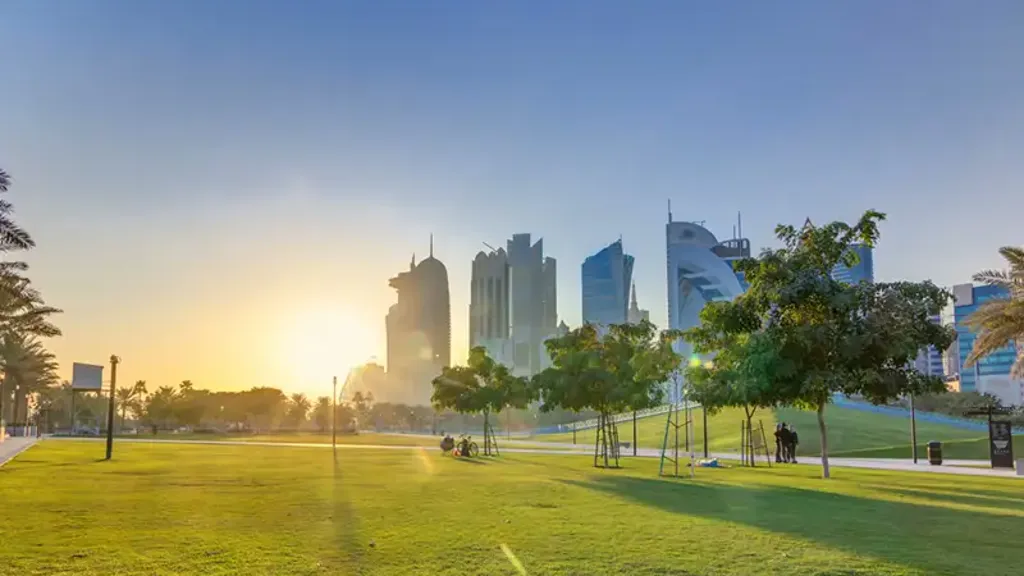
Designing Doha’s first large landscaped public park
Hotel Park, Doha, Qatar
Explore
Discover more about our expertise:
Experts
Contact our team today:

James Conway
Americas Landscape Architecture Leader
James Conway is an Associate Principal and the Americas South Cities Planning and Design Leader based in Arup’s Austin office.

James Conway
Americas Landscape Architecture Leader
James Conway is an Associate Principal and the Americas South Cities Planning and Design Leader based in Arup’s Austin office.

Penny Hall
Australasia Landscape Architecture Leader
Penny leads our markets and client strategy in Queensland. She focuses on how we can leverage our businesses to create new opportunities and value for our clients, helping build a strong and sustainable future for Queensland.

Penny Hall
Australasia Landscape Architecture Leader
Penny leads our markets and client strategy in Queensland. She focuses on how we can leverage our businesses to create new opportunities and value for our clients, helping build a strong and sustainable future for Queensland.

Claudia Yu
East Asia Landscape Architecture Leader
Claudia brings over 17 years of expertise in landscape architecture across Hong Kong, Mainland China, Southeast Asia, and the Middle East. As East Asia Landscape Architecture and Nature Positive Design Leader, she oversees a range of projects from conception to construction, including landscape master planning and therapeutic garden design.

Claudia Yu
East Asia Landscape Architecture Leader
Claudia brings over 17 years of expertise in landscape architecture across Hong Kong, Mainland China, Southeast Asia, and the Middle East. As East Asia Landscape Architecture and Nature Positive Design Leader, she oversees a range of projects from conception to construction, including landscape master planning and therapeutic garden design.

Arturo Fernandez
Europe Landscape Architecture Leader
Telephone: +34 (0) 91 523 9276
Email: madrid@arup.com
Arturo is a landscape architect and horticulturist with more than 15 years designing and managing landscape, urban regeneration, and nature-based solutions projects.

Arturo Fernandez
Europe Landscape Architecture Leader
Telephone: +34 (0) 91 523 9276
Email: madrid@arup.com
Arturo is a landscape architect and horticulturist with more than 15 years designing and managing landscape, urban regeneration, and nature-based solutions projects.

Mike Wood
UKIMEA Landscape Architecture Leader
Mike is a director in Arup’s landscape architecture team in the UK. As a Fellow of the Landscape Institute (FLI), he has more than 25 years’ experience leading and managing landscape architectural teams in the design and delivery of a wide range of public realm projects.

Mike Wood
UKIMEA Landscape Architecture Leader
Mike is a director in Arup’s landscape architecture team in the UK. As a Fellow of the Landscape Institute (FLI), he has more than 25 years’ experience leading and managing landscape architectural teams in the design and delivery of a wide range of public realm projects.
Get in touch with our team






